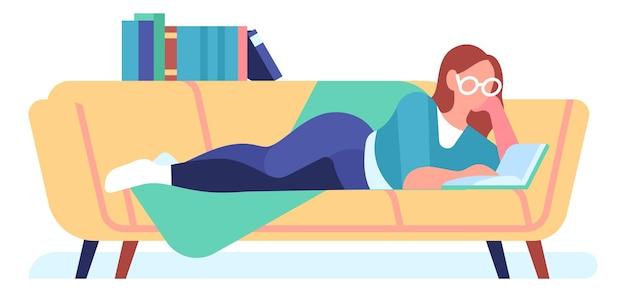Finding it difficult to fall asleep at night? Your diet may be to blame. The foods we consume directly impact our overall health, and that includes the quality of our sleep. In this blog post, we will explore which foods can hinder your ability to sleep and discuss why it’s essential to avoid them for a restful night’s sleep.
Sleep is an integral part of our daily routine, allowing our bodies and minds to rejuvenate and repair. However, certain foods can disrupt this delicate balance, making it harder for us to drift off into a peaceful slumber. By understanding which foods to avoid, you can make simple adjustments to your diet to improve the quantity and quality of your sleep.
So, if you’re tired of counting sheep and feeling groggy in the morning, read on to discover the surprising foods that may be hindering your ability to sleep and how to make better food choices for a well-rested night.

Foods That Sabotage Your Sweet Slumber
Sleep is a precious commodity, and sometimes it seems like the world is conspiring to steal it away from us. From the neighbor’s noisy dog to the endless thoughts that swirl around our heads, it can be difficult to get the quality sleep we all deserve. However, did you know that certain foods can also play a role in hindering your ability to catch those coveted Z’s? Yes, it’s true! So, if you find yourself tossing and turning at night, it may be time to take a closer look at your diet. Here are some foods that might be sabotaging your sweet slumber:
1. The Dreaded Coffee Monster
Ah, coffee. The best friend of the bleary-eyed and the groggy. While a morning cup of joe can be a lifesaver, consuming it later in the day can disrupt your sleep patterns. The caffeine in coffee is a powerful stimulant that can stay in your system for hours. So, if you find yourself craving that late-afternoon or evening pick-me-up, opt for a decaf version or switch to a calming cup of herbal tea instead.
2. Sneaky Sugar Bombs
You might expect that a sugary treat before bed could leave you buzzing with energy, but what about everyday foods that are secretly loaded with sugar? Foods like sweetened cereals, flavored yogurts, and even pasta sauces can contain surprising amounts of the sweet stuff. Excessive sugar intake can cause blood sugar spikes and crashes, leading to restless nights. Keep an eye on those labels and opt for healthier, low-sugar alternatives whenever possible.
3. The Fiery Flame of Spicy Foods
If you’re a fan of spicy cuisines, you might want to rethink your dinner choices. Spicy foods can bring the heat not only to your taste buds but also to your sleep patterns. They can trigger heartburn or indigestion, disrupting your peaceful slumber. While a mouthful of spice can be delightful during the day, save the spiciness for lunchtime and opt for something milder in the evening to maintain your sleep tranquility.
4. Greasy Delights
Who doesn’t love indulging in a juicy burger or some crispy fried chicken? While these greasy delights can satisfy your taste buds, they can wreak havoc on your sleep. High-fat foods take longer to digest, leading to discomfort and even acid reflux. If you want to avoid midnight stomach troubles, save the greasy feasts for daylight hours and opt for lighter, healthier options before bed.
5. Alcohol, the Sneaky Sleep Thief
You might think that a glass or two of wine before bed helps you drift off into dreamland, but alcohol can be a sneaky thief when it comes to quality sleep. While it might initially make you feel drowsy, it disrupts your natural sleep cycles, leaving you feeling groggy and unrested in the morning. So, if you want to ensure a night of rejuvenating sleep, it’s best to limit your alcohol intake or avoid it altogether, especially in the hours close to bedtime.
6. The Sinister Stimulating Soda
Soda lovers, beware! Your favorite fizzy drink might be sabotaging your sleep. The combination of sugar and caffeine found in many sodas can give you a double whammy of sleep-disrupting effects. The sugar can lead to blood sugar fluctuations, while the caffeine can keep you buzzing when all you want to do is snuggle up in bed. Opt for healthier alternatives like infused water or herbal teas to keep your sleep undisturbed.
Sleep is a vital part of our well-being, and our diet plays a significant role in ensuring we get the rest we need. By being mindful of the foods we consume before bedtime, we can minimize sleep disruptions and set ourselves up for sweet dreams and a refreshing wake-up call. So, the next time you’re tempted to reach for that cup of coffee or indulge in a sugary snack, remember that a good night’s sleep is just a few food choices away.

FAQ: Foods That Can Mess With Your Sleep
Getting a good night’s sleep is essential for optimal health and well-being. However, certain foods can hinder your ability to sleep peacefully. In this FAQ-style subsection, we will answer some common questions about the foods that can disrupt your sleep and share tips to improve your sleep quality.
Q: Can the food I eat affect my sleep
A: Absolutely! The food you eat can have a significant impact on your sleep quality. Certain foods can disrupt your sleep patterns, making it harder for you to fall asleep or stay asleep throughout the night.
Q: Which foods should I avoid if I want a good night’s sleep
A: While individual responses may vary, here are some common culprits that you might want to steer clear of before bedtime:
Stimulants: Caffeine and its sneaky allies
Foods and beverages rich in caffeine, such as coffee, tea, energy drinks, and chocolate, can interfere with your sleep. It’s best to avoid them, especially in the late afternoon and evening.
Spicy and Acidic Foods: Tummy troubles in the night
Spicy and acidic foods, like hot peppers, citrus fruits, and tomato-based products, can lead to heartburn or indigestion, making it uncomfortable to sleep.
Greasy and Fatty Foods: Heavy digestion, light sleep
Indulging in greasy and fatty foods before bed can slow down digestion and cause discomfort, leading to difficulty in falling asleep and staying asleep.
Q: What are some sleep-friendly alternatives to these foods
A: Fear not! We’ve got you covered with some sleep-friendly alternatives that can help you catch those Z’s:
Sip on Herbal Tea: Caffeine-free relaxation
Replace caffeinated beverages with soothing herbal teas like chamomile or lavender. They can relax your mind and prepare you for a restful slumber.
Opt for Light Snacks: Nibbles for a calm stomach
If you need a snack before bed, choose something light and easy to digest. Consider options like a small bowl of whole-grain cereal with milk or a banana.
Enjoy Protein-rich Foods: Sustained overnight energy
Including protein-rich foods in your evening meal can help maintain stable blood sugar levels throughout the night. Opt for lean proteins like chicken, fish, or tofu.
Q: Can the timing of my meals affect my sleep
A: Absolutely! The timing of your meals can impact your sleep. Here are a few tips to keep in mind:
Avoid Late-night Feasts: Give your body time to digest
Eating a heavy meal too close to bedtime can lead to discomfort and make it harder for you to fall asleep. Try to have your dinner at least two to three hours before hitting the hay.
Don’t Skip Dinner Either: Hunger can keep you up
On the other hand, going to bed on an empty stomach might leave you feeling hungry and restless. It’s essential to strike a balance and have a light, well-rounded dinner.
Listen to Your Body: Snack when necessary
If hunger strikes before bed, it’s okay to have a light snack. Just make sure it’s something that won’t disrupt your sleep, like a small handful of nuts or a slice of whole-grain toast with almond butter.
Q: Are there any other lifestyle factors that can affect my sleep
A: Absolutely! While food plays a crucial role, other lifestyle factors can impact your sleep quality too. Here are a couple of things to consider:
Create a Relaxing Bedtime Routine: Set the mood for sleep
Establishing a regular bedtime routine can signal to your body that it’s time to wind down. Dim the lights, take a warm bath, or read a book to relax your mind before hopping into bed.
Maintain a Comfortable Sleep Environment: Optimize your sleep cave
Ensure that your bedroom is cool, dark, and quiet, as these factors can significantly contribute to a good night’s sleep. Consider using earplugs, an eye mask, or a white noise machine if necessary.
Limit Screen Time: Bid farewell to your gadgets
The blue light emitted by electronic devices can interfere with your natural sleep-wake cycle. Make it a habit to power down your gadgets at least an hour before bedtime.
By being mindful of the foods we consume before bedtime and maintaining a healthy sleep routine, we can improve our sleep quality and enjoy more restful nights. Remember, sleep is a vital part of a healthy lifestyle, so choose your late-night snacks wisely and embrace the joys of rejuvenating sleep!
Note: This blog post is intended for informational purposes only and should not be considered medical advice. If you have specific concerns or sleep-related issues, it’s best to consult with a healthcare professional.